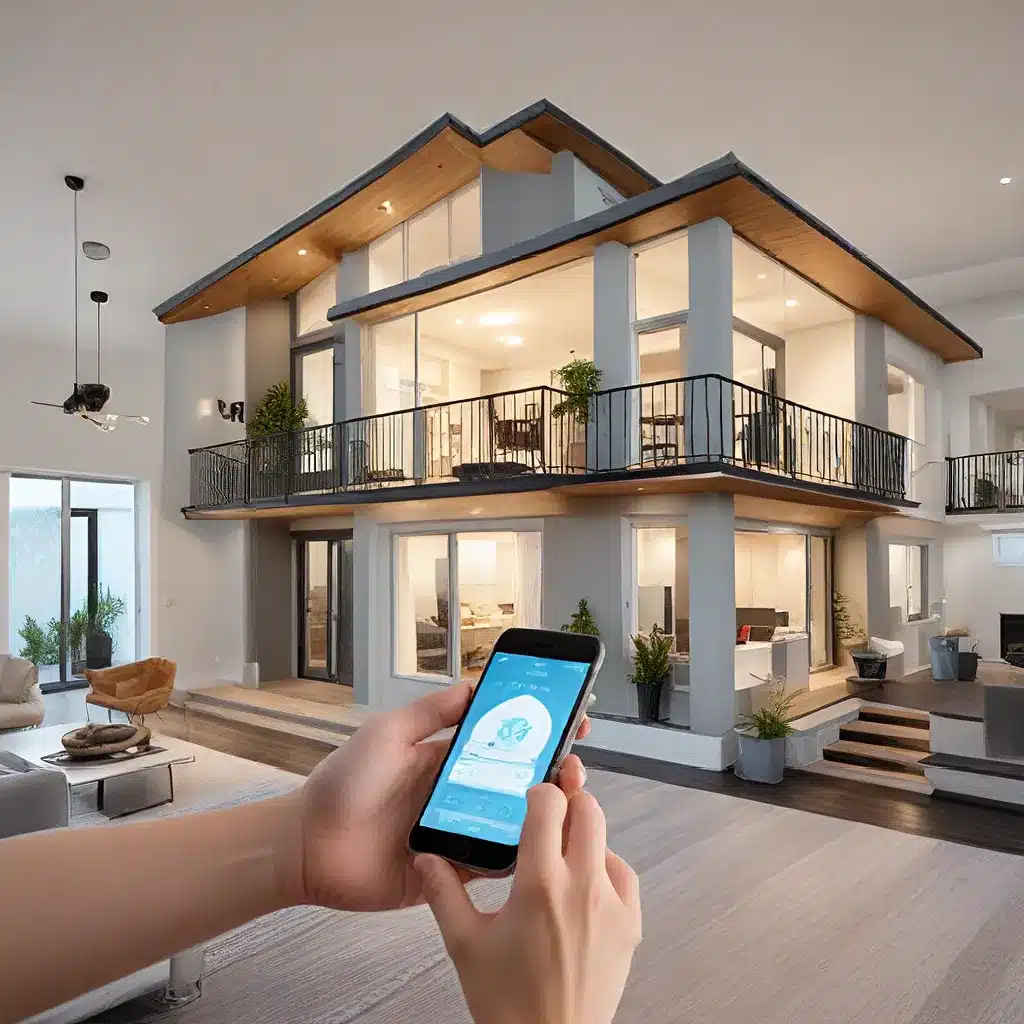
The Rise of Smart Home Technologies
The concept of the smart home has been evolving rapidly over the past few decades, driven by advancements in sensor networks, Internet of Things (IoT), and related technologies. Smart homes are transforming the way we interact with our living spaces, offering unprecedented levels of comfort, convenience, and energy efficiency.
At the heart of this transformation lies a network of interconnected sensors and smart devices that work in harmony to automate and optimize various aspects of the home environment. From lighting and climate control to security and appliance management, these sensor-enabled systems are revolutionizing the way we experience our living spaces.
Sensor Networks and IoT in Smart Homes
The foundation of a smart home lies in its sensor network. These sensors are strategically placed throughout the home, collecting a wealth of data on temperature, humidity, occupancy, energy usage, and more. This data is then processed and analyzed by a central smart home hub, which acts as the brain of the system.
The smart home hub, often a hardware device like the Amazon Echo or Google Home, integrates and coordinates the various smart devices in the home. It can be programmed to automate actions based on preset schedules or in response to real-time sensor data. For example, the hub can automatically adjust the thermostat when the home is unoccupied, turn off lights when a room is empty, or even notify the homeowner of potential security breaches.
IoT technologies play a crucial role in enabling seamless communication and data exchange between the various components of a smart home. Devices such as smart lights, smart plugs, and smart appliances often rely on wireless protocols like Zigbee, Z-Wave, or Matter to connect to the home network and the central hub. This allows for remote monitoring and control, as well as the integration of multiple systems for a truly automated living experience.
Enhancing Comfort and Convenience
One of the primary benefits of sensor-enabled smart homes is the enhanced comfort and convenience they provide. Smart homes can learn and adapt to the homeowners’ preferences and habits, automatically adjusting the environment to suit their needs.
For instance, a smart thermostat can track the occupancy patterns in the home and adjust the temperature accordingly, ensuring a comfortable climate without unnecessary energy consumption. Similarly, smart lighting systems can automatically dim or turn on/off based on the time of day, natural light levels, and the presence of occupants.
Convenience features in smart homes extend beyond environmental controls. Smart home assistants, powered by voice recognition and artificial intelligence, can respond to verbal commands to control various devices, set reminders, and even provide personalized recommendations. Homeowners can simply ask their smart speaker to turn on the lights, play music, or look up the weather forecast.
Optimizing Energy Management
Alongside enhanced comfort and convenience, energy efficiency is a key driver behind the adoption of sensor-enabled smart home technologies. By leveraging real-time data from various sensors, smart homes can optimize energy consumption and reduce utility costs.
Smart thermostats, for example, can learn the occupancy patterns and temperature preferences of the household, adjusting the heating and cooling systems accordingly. This not only ensures a comfortable environment but also minimizes energy waste when the home is unoccupied.
Smart appliances, such as refrigerators, washing machines, and dishwashers, can be programmed to run during off-peak hours or when energy prices are lower, helping to manage the home’s overall energy demand. Additionally, some smart home systems can integrate with the smart grid, enabling two-way communication between the home and the utility provider, facilitating demand response and energy management initiatives.
Addressing Security and Privacy Concerns
As with any technology that involves the collection and processing of personal data, security and privacy are legitimate concerns when it comes to smart home systems. Homeowners must be mindful of the potential risks and take appropriate measures to protect their data and devices.
Encryption, access control, and regular software updates are crucial for maintaining the security of smart home systems. Homeowners should also be cautious about the types of data they share with their smart devices and consider the privacy implications of voice commands, camera recordings, and other sensor-generated information.
Emerging standards and protocols, such as Matter, are aimed at addressing these security and compatibility challenges, providing a framework for seamless and secure communication across smart home devices and platforms.
The Future of Sensor-Enabled Smart Homes
As sensor network technologies and IoT continue to evolve, the capabilities of smart homes are expected to expand even further. Advancements in machine learning and artificial intelligence will enable smart home systems to adapt and personalize themselves to the unique preferences and routines of each household.
Innovations in areas like energy storage, renewable energy integration, and predictive maintenance will further enhance the sustainability and efficiency of smart homes. Moreover, the integration of smart home systems with healthcare and assisted living technologies will create new opportunities for aging-in-place and independent living for the elderly and individuals with disabilities.
The future of sensor-enabled smart homes promises a more comfortable, convenient, and energy-efficient living experience, empowering homeowners to optimize their living spaces and contribute to a more sustainable future.
Sensor-Networks.org is at the forefront of these advancements, providing a comprehensive resource for professionals, researchers, and enthusiasts interested in the latest developments in sensor networks and IoT technologies.
Conclusion
The integration of sensor networks and IoT technologies in smart homes has revolutionized the way we interact with our living spaces. From enhanced comfort and convenience to optimized energy management, these sensor-enabled systems are transforming the residential landscape.
As security and privacy concerns are addressed, and artificial intelligence and machine learning continue to advance, the future of smart homes holds even greater promise. Homeowners can look forward to a more personalized, sustainable, and integrated living experience, empowered by the latest advancements in sensor network and IoT technologies.